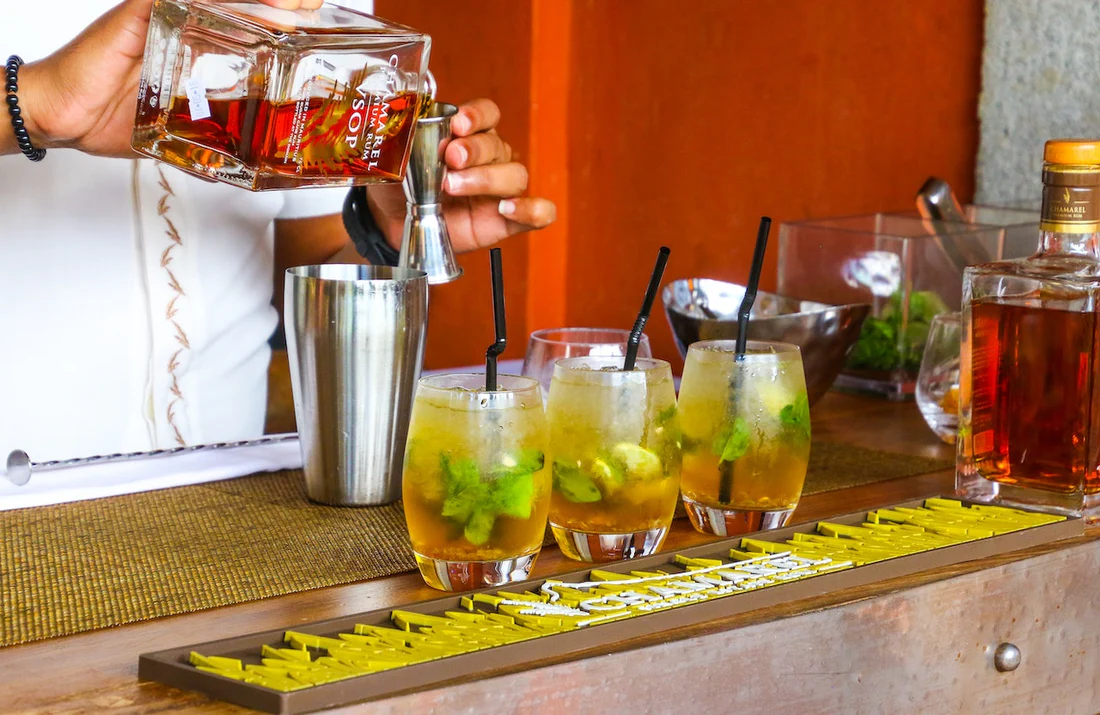It’s an art form that demands a deep understanding of the essential components that contribute to the overall flavour profile and drinking experience.
Sweetness:
Sweetness is more than just sugar; it adds richness, depth, and balance to cocktails. Ingredients like simple syrup, honey, and fruit liqueurs are commonly used to sweeten drinks, countering acidity and bitterness.
Achieving the right balance of sweetness is crucial for creating well-rounded cocktails that appeal to a wide range of palates. Examples of sweet cocktails include the Mojito and Piña Colada.
Acidity:
Acidity provides brightness, freshness, and tartness to cocktails. Citrus fruits like lemon, lime, and grapefruit are primary sources of acidity, adding zesty and refreshing flavours to drinks.
Balancing acidity with sweetness and bitterness is key to creating a harmonious flavour profile in cocktails. Classic acidic cocktails include the Margarita, Daiquiri, and Whiskey Sour.
Bitterness:
Bitterness adds complexity, depth, and a lingering finish to cocktails. Ingredients like bitters, amaros, and fortified wines contribute nuanced flavours and herbal notes to drinks.
Bitterness helps balance sweetness and acidity, adding sophistication and depth to cocktails. Iconic bitter cocktails include the Manhattan, and Old Fashioned.
Aromatics:
Aromatics elevate the fragrance, complexity, and depth of flavour in cocktails. Ingredients like fresh herbs, spices, botanicals, and aromatic bitters infuse drinks with distinctive scents and flavours.
Aromatics enhance the sensory experience of cocktails, enticing the drinker with enticing aromas. Aromatic cocktails include the Mint Julep or Negroni.
Texture:
Texture refers to the mouthfeel or tactile sensation of a cocktail on the palate, which significantly impacts the overall drinking experience.
Ingredients such as egg whites, cream, and carbonation play pivotal roles in enhancing texture by adding richness, creaminess, or effervescence to drinks.
Egg whites and aquafaba create a frothy foam, providing a silky, luxurious texture, as seen in classics like the Raki Sour and Gin Fizz. Cream adds richness and creaminess, as in the White Russian and Brandy Alexander, while carbonation brings effervescence to cocktails like the Gin & Tonic or French 75.
Dilution:
Dilution is the addition of water to a cocktail, achieved through shaking, stirring, or the use of ice. Proper dilution is crucial for achieving the ideal balance of flavours and ensuring a smooth drinking experience.
Ice plays a dual role in chilling and diluting cocktails, controlling the drink’s potency and intensity. Cocktails that benefit from careful dilution include the Martini and the Whiskey Highball.
Understanding the key components of cocktail making is essential for crafting flavourful and memorable libations.
Delve into the world of cocktail making at home by experimenting with classic recipes like the Martini, Old Fashioned, and Margarita. Mastering these classics provides a solid foundation for understanding flavour balance and mixology techniques.


